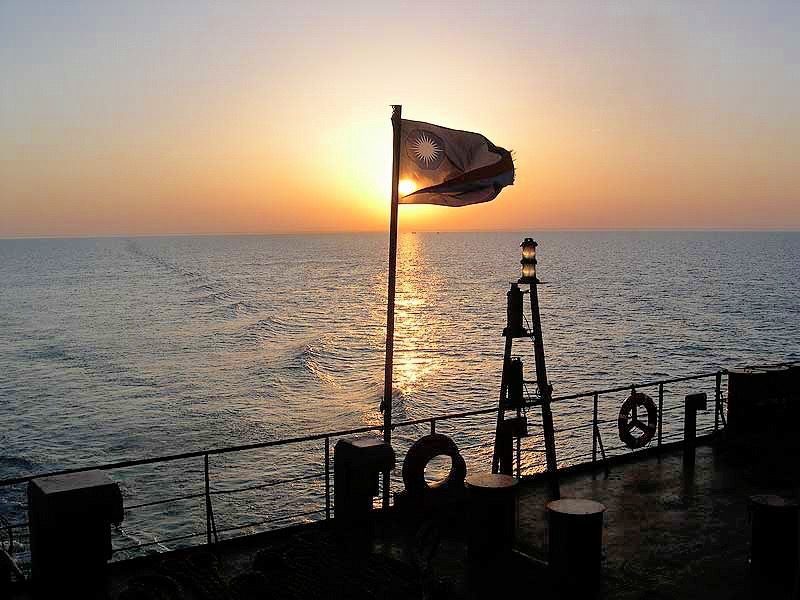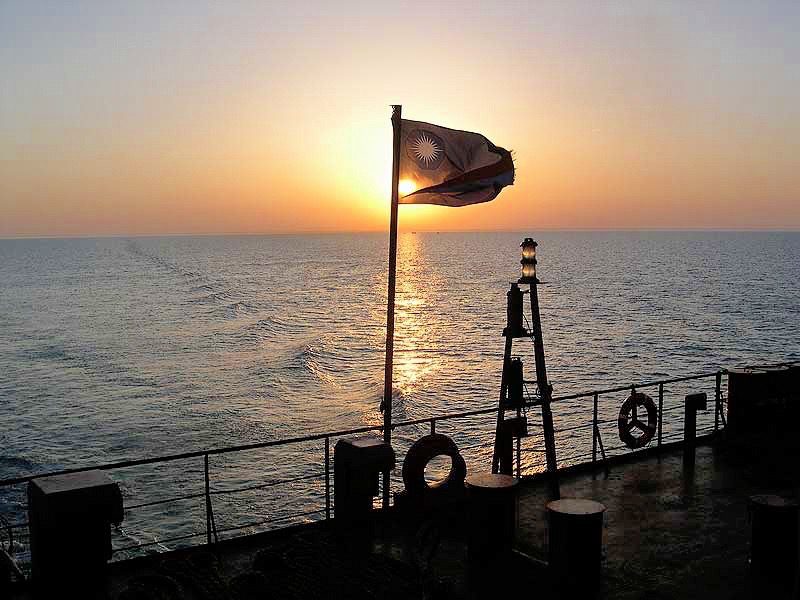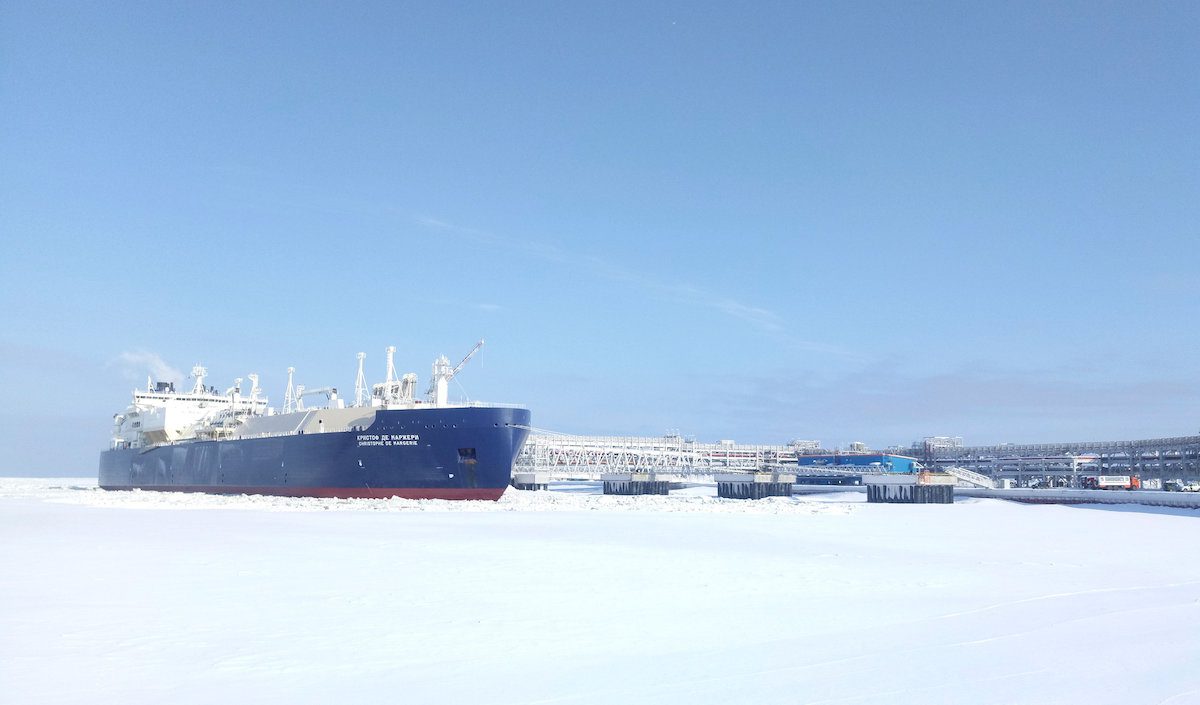
 By Laurie Goering LONDON, April 13 (Thomson Reuters Foundation) – Ships carrying goods around the world produce more than 2 percent of the world’s climate-changing emissions – as much as Germany, the European Union says.
By Laurie Goering LONDON, April 13 (Thomson Reuters Foundation) – Ships carrying goods around the world produce more than 2 percent of the world’s climate-changing emissions – as much as Germany, the European Union says.
But shippers – much like aviation companies – until now have not had to set clear targets to slash those emissions.
That changed Friday as the International Maritime Organization, meeting in London, agreed a first strategy to cut emissions – in part as a result of pressure from tiny, remote nations such as the Marshall Islands.
The country’s low-lying atolls are hugely vulnerable to sea level rise from climate change, it is heavily dependent on shipping – 90 percent of its food arrives that way – and it is home to the world’s second biggest ship registry, behind Panama.
That meant “we had a very unique opportunity to shape the outcome” of negotiations, said David Paul, the Marshall Islands’ environment minister.
“We are by far dependent, almost entirely, on shipping, one way or the other,” the 43-year-old minister told the Thomson Reuters Foundation in an interview. “We’re a small country but when it comes to shipping we are a force to reckon with.”
The Marshall Islands, a Pacific nation where the United States carried out nuclear tests in the 1940s and 1950s, is home to 75,000 people, the majority of them living in Majuro, the capital, and Ebeye, the second largest city.
IMO Reaches Deal to Cut CO2 Emissions from Ships
Already it is struggling with climate change pressures, from stronger “king tides” that flood homes and fields and seep into the country’s underground fresh water, to worsening droughts, said Paul, who represents Kwajalein Atoll, the country’s largest island, in the country’s legislature.
“In the Marshall Islands we’re at the forefront of climate change. We are experiencing it day in and day out,” he said.
As saltwater destroys fields and water supplies, “it’s becoming far harder for us to live in certain parts of the country than ever before”.
Such creeping losses don’t attract the international attention that powerful cyclones do, but “the frequency of these events adds up, and it really takes a toll on the country”, he said.
Despite that, “there’s no way we’re going to migrate and leave the country”, he said. Instead, the country aims to put pressure on bigger nations to cut their emissions and, at home, “to adapt and adjust, to build a community far more resilient than before”.
GOING GREEN
So far the Marshall Islands government is promoting water harvesting, trying out new roof designs aimed at capturing and channeling rain, and experimenting with solar-powered desalination, among other efforts.
But the biggest push is to reduce the islands’ own emissions, particularly from diesel-fueled generators that still provide much of the country’s electricity.
Home solar power systems are already in widespread use in some remote atolls, and the country is developing a step-by-step plan to install solar power more widely and become carbon neutral by 2050.
Marshall Islands Calls on IMO to Get Serious About Curbing Shipping’s Emissions
That will happen largely by cutting fossil fuel use from electricity production and transport, and burning trash to produce electricity, Paul said.
The plan, expected to be in place by the end of the year, would be a first for an island nation, said the minister, who formerly managed the country’s utilities and now also serves as minister-in-assistance, standing in as needed for President Hilda Heine.
“We absolutely believe we can” become carbon neutral by mid-century, he said.
But finding funding to make the switch remains a frustration, not least because the Marshall Islands – like many small island nations – lacks the bureaucratic muscle to make complex funding applications, and because it needs smaller sums which big donors trying to move billions can find challenging.
Working through the World Bank, the country received a first grant from the Green Climate Fund (GCF) – the main channel for billions of dollars in climate finance – to build a protective sea wall on Kwajalein Atoll, which is also home to a U.S. military garrison.
But getting successful applications together to shift the country’s energy systems has proved harder, Paul said.
“There’s a level of frustration we feel. We know what we need and what needs to be done. We just don’t have the resources,” he said.
Globally, however, Paul has no doubt a shift to clean energy is coming.
Solar and wind power are now cheaper than fossil fuel energy in many parts of the world, and set to get cheaper still, with fast-improving batteries poised to solve the problem of storing renewable energy, he said.
Investors and businesses will turn to clean energy “because it makes sense. They will change not to clean the atmosphere but because they want to make money and make their shareholders happy”, he said.
But making that happen fast enough to keep the Marshall Islands above water may require financial institutions, governments or other entities stepping in to absorb some of the early risks investors face in switching to clean energy, he said.
That could include things like guaranteeing set rates to buy clean power, setting national policies that prioritize buying renewable energy, simplifying permits or offering public loans or tax credits for clean energy investment.
“There’s so much (investment) money that’s sitting idle. People don’t know what to do with it,” Paul said. If some of the risk is removed, clean energy investment “could really exponentially take off”.
(Reporting by Laurie Goering @lauriegoering ; editing by Alex Whiting: (Please credit the Thomson Reuters Foundation, the charitable arm of Thomson Reuters, that covers humanitarian news, climate change, resilience, women’s rights, trafficking and property rights. Visit http://news.trust.org/climate)
(c) Copyright Thomson Reuters 2018.

 Join The Club
Join The Club












